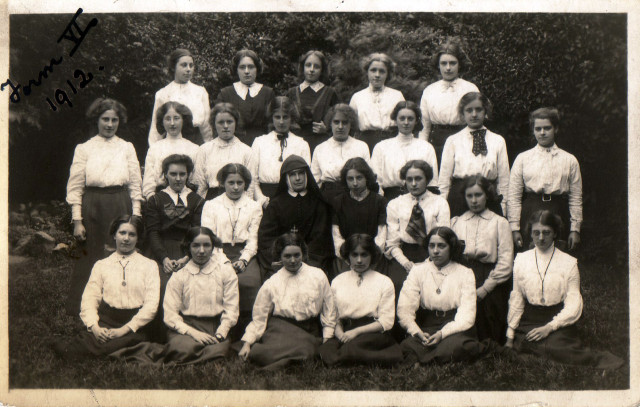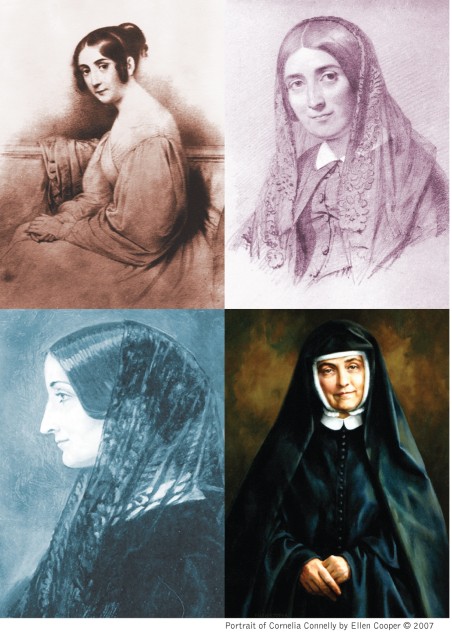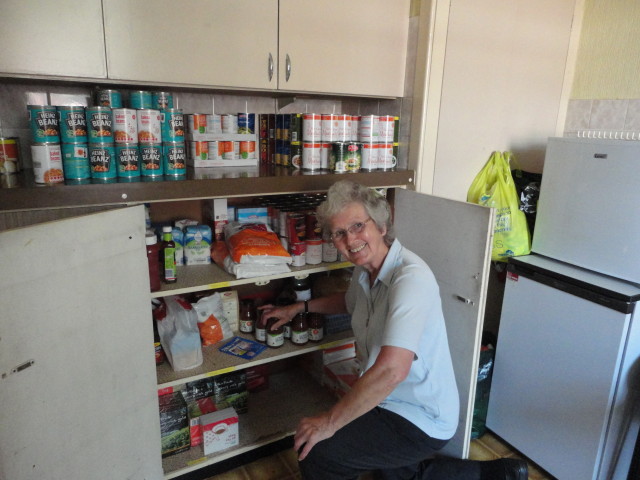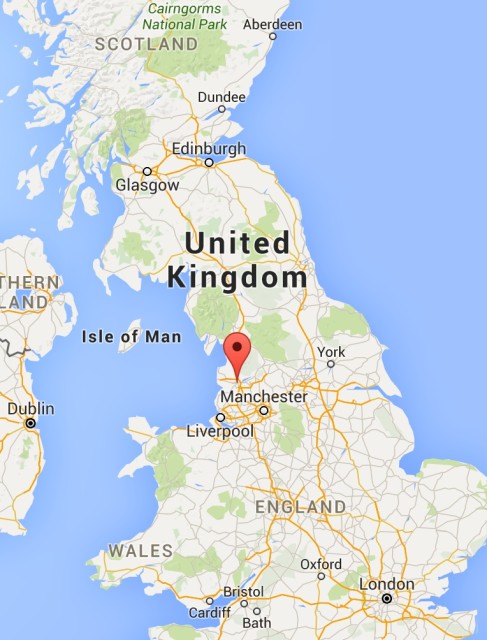Sister Philomena, recently the Society celebrated 162 years of your life and service in Preston. Can you tell us more about this and how you came to be in the diocese of Lancaster?
Yes, the Society of the Holy Child Jesus is older than our diocese of Lancaster! The first five sisters came to Preston in 1853 when the situation in the town was dire. The mill owners had ‘locked out’ the workers who were on strike for better pay. There were soup kitchens for poor relief. Some things never change! Look at the Food Banks needed now and the struggle to get a living wage when zero hour contracts are so prevalent. Owing to bigotry against Catholics the first sisters could not wear a religious habit. They wore typical servants’ dress or widows’ clothes.

Three years later more sisters came to live in Blackpool and later still we had a convent in Lancaster, living alongside and working in the Cathedral and parish as well as schools in the city. In every place it was to respond to the need for education which was a critical want of the age and it was that which drew our Foundress, Cornelia Connelly, to come to England at the insistence of Cardinal Wiseman in 1846 when she founded the Society in Derby.
Cornelia Connelly was rather unusual as the Foundress of a religious congregation. Could you say a little more about her and her influence?

Cornelia’s story deserves to be known as her life experience speaks to so many women today whose lives have been scarred and wounded by loss, bereavement, family breakdown and betrayal.
Brought up and well-educated in Philadelphia in the early 19th century, and then happily married to Pierce Connelly, an Episcopalian minister, with him she became an ardent Catholic. As young converts they journeyed to Rome where they were welcomed and feted and met many influential Catholics from England. Huge financial loss necessitated their return to America where they went to live with their young children in a remote area of Louisiana, working as teachers. Pierce was employed by the Jesuits and Cornelia by the Sisters of the Sacred Heart. Pierce always considered that he was a priest and after careful discernment with spiritual guidance he asked Cornelia if she would agree to his seeking ordination in the Catholic Church. It meant an end to their married life together.
Cornelia did not want to stand in the way of what would best serve God’s loving purposes and as their children would remain in their care and were well provided for she agreed, though her heart was broken. Pierce went to Rome and was ordained. Cornelia and her two youngest children also went to Rome and lived in the Sacred Heart convent at the Trinita dei Monti. There, in a period of immense inner suffering, she gradually came to realise that God had plans for her too. She was encouraged by some influential English Catholics to begin a new religious order in England where the need for Catholic education was urgent. In a wonderful way her own educational opportunities throughout her life until then enabled her to develop her own philosophy of education, based on the deepest truth that each and every one of us is God’s unique and beloved creation, called to become God’s fully alive daughters and sons, sisters and brothers of Christ. She saw that true Christian education is developmental, enabling every person to become all that God longs for them to be, growing always in faith and living a fully human life.
This is the vision that has inspired generations of Holy Child sisters who, over the years, have contributed so much to the Church’s mission of Catholic education in this diocese. In the 19th century it was in elementary schools and night schools and in pupil teacher training. In the 20th century in parish primary, secondary, and comprehensive schools and in the Catholic Sixth Form College in Preston. Our celebration on October 15th bore witness to that tradition when St Wilfrid’s Church in Preston was filled with friends, colleagues and former students, people whose lives have been strongly influenced by the spirit of the Society.
It is the Year of Consecrated Life. What would you like to tell us about being a Holy Child sister?

In “THE JOY OF THE GOSPEL” Pope Francis has some powerful words that say better than I can what it means first to be a religious sister. He invites everyone to “a renewed personal encounter with Jesus Christ…to do this unfailingly each day.” This personal encounter is the deep, living centre of our personal life. Francis tells us to return to “joy of the moment when Jesus looked at me” because a vocation “is a response to a call to love.” He knows that “people today…need us to bear witness to the mercy and tenderness of the Lord which warms the heart, rekindles hope and attracts people towards the good… since we were created for what the Gospel offers us: friendship with Jesus and love of our brothers and sisters.” One of the many wonderful signs in the Church of God’s loving presence in us and working through us is the way the Holy Spirit has inspired so many different ways of life, of what we call religious life, communities of people who love and serve in various ways.
My religious family has its own spirit and this is where I feel totally “at home”. It is very hard to put into words what attracted me and sustains me because it is above all a gift of an ever deepening relationship with God which I am living out in this dear community of the Society and sharing its mission. I would like to use some words from our Constitutions here because they express this best: “The humble, hidden life of Jesus is the well-spring of the Society, the source of its ardour and joy… Our life is hid with Christ in God. As we grow in intimacy with him, his power at work in us can touch the hearts of those we meet. They will be led to known the Father’s mercy and his boundless love through the mystery of Christ among us. For this is our mission: to help others to believe God lives and acts in them and in our world and to rejoice in his presence.”
Are you sad that Holy Child sisters have had to close their community in Preston after such a distinguished history there?

In one way I am sad. But our work here is done. Through the growth of education new generations of Catholics in this city have taken on the responsibilities for the life and service of the Church and we are proud of that. Though Holy Child sisters are far fewer now in this diocese than once they were, they are still living in community in Blackpool and Lytham where they contribute in varied simple and hidden ways to the service of the Gospel. We all rejoice that our Society has become international so that the newer members are able to bring our spirit and traditions and charism for education to where the need is so urgent, in Nigeria, Ghana, Chad, Chile and the Dominican Republic.
To discover more about our Society and Cornelia, share our prayer and the monthly reflection, read about our life and ministry internationally, they can find all this on our website.



Comments are closed.